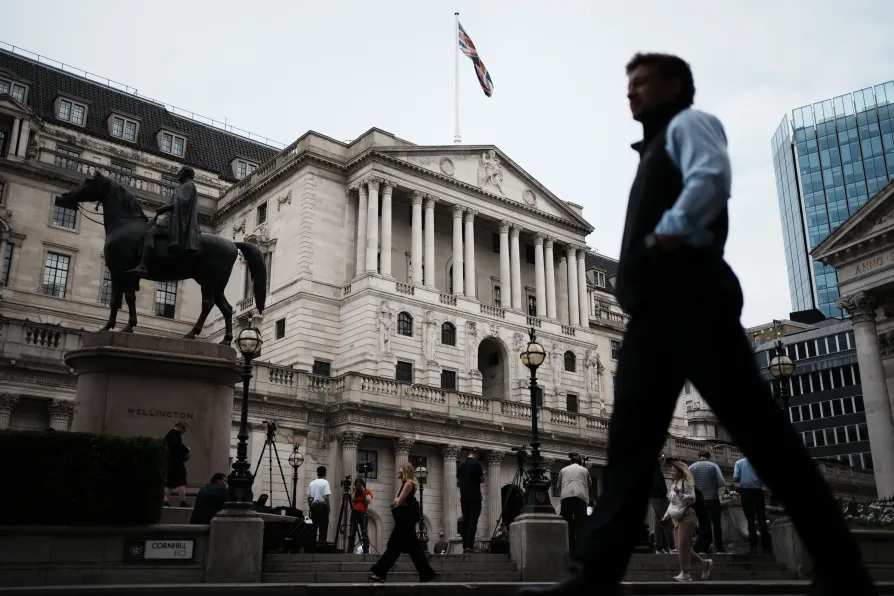
 The Bank of England, London
The Bank of England, London
IN WHAT seems an age ago, actually less than two years ago, the Bank of England ventured the prediction that inflation would come back to the 2 per cent target at the end of 2024. As the economy enters its final quarter of 2025 the inflation rate is at 3.8 per cent and the markets were a bit boisterous in anticipation of an interest rate cut.
The standard mainstream media account — reflecting Establishment opinion, the ingrained prejudices of bourgeois economic theorists and the naked class interest of our ruling class — has it that inflation is caused by wage increases.
When the Bank of England piously prayed for a 2 per cent inflation rate actual wages for British workers were stuck. The TUC estimates that in the years following the last great capitalist crash — the financial crisis of 2008 — each worker missed out on £14,600 in wages.
For working-class families inflation is experienced as lagging wages, runaway prices, rent rises out of control and punitive interest rates on mortgages.
One way of thinking about the coupling of wage freezes and rising prices is to consider inflation as a stealth tax in that it diminishes the purchasing power of wages. This double whammy effect is becoming the default feature of capitalism in developed capitalist countries in general and Britain in particular.
The property-owning and more affluent middle classes benefit from rising asset prices but are affected to a certain extent by the same pressure on incomes that workers experience.
But for the really rich — people whose wealth is derived from stocks, real estate acquisition and rent-seeking activities in general — inflation increases the market value of their assets, the value of which is realised more in raising loans for further speculation than in sales.
At the level of the Treasury establishment the destabilising and disruptive effects of inflation mean a policy of long-term low inflation has become the default position because it is more easily captured by interest rate adjustments and, as always, measures to limit wage growth.
2008 saw a profound crisis that took the Western-orientated global economy close to catastrophic collapse. It is hardly contested that the Marxist account of these events attributed it to the financialisation phenomenon in which capital increasingly flowed into speculative financial instruments and products rather than be reinvested in production. Marx used the term “fictional capital,” as against real or “productive” capital invested in machines, capital equipment, infrastructure and labour.
While it is widely anticipated that Western capitalism is due another of these in-built crises the shape looks a bit different with the productive axis of the global economy shifted away from the capitalist core of developed economies.
The immediate fiscal, economic and productive crises of Britain, Germany, France and North America is having a profound effect with the political centre of traditional bourgeois and social democratic parties losing coherence and purchase on their traditional electorates.
The political priority — to reconstitute the working class and its movement as a driving force in transformation of our society — does not figure in the calculations of most politicians or even trade union leaders.
But as it becomes clear that capitalism doesn’t have the answers to its own existential crisis it becomes essential that we fashion the ideological, philosophical, organisational and political tools that can open the way to working-class state power and socialism.
It is by these metrics that the progressive elements in British society — presently distributed across a a spectrum of activity — must find a way to a common political purpose.
The left, the movements for peace and against austerity, against racism and fascism and the basic class organisations of the working class — our unions — need leadership, political clarity and unity.










